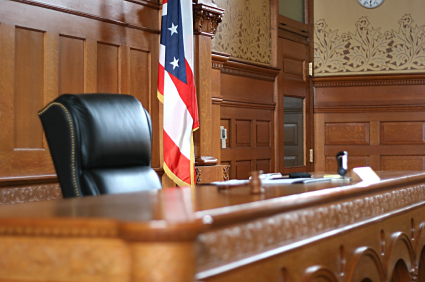
In the year 2017, driving under the influence remains one of the most highly politicized offenses in Illinois courts. There is no offense that will get a prosecutor fired quicker for giving a good deal than DUI. In these cases, Assistant State’s Attorneys are always wary of how it will look after they give the defendant an offer for a negotiated plea.
Judges are also wary of these cases, because each offender represents a risk of getting intoxicated and killing an innocent person on the road.
And so, the court system comes down very hard on DUI offenders.
The first offense of driving under the influence is a misdemeanor. A misdemeanor is different from a felony in that the maximum penalty for a misdemeanor is up to one year in jail, while the minimum penalty for a felony is one year or more.
The maximum jail sentence for driving under the influence is 364 days in the county jail.
The court is also authorized to impose a fine on the defendant. The defendant may be required to pay $2500 in fines. This does not, however, count court costs.
Illinois law dictates that the circuit clerk must collect a DUI statutory assessment of $500 on the first offense. In addition, there is a $750 DUI technology fee that is collected. Although many judges are aware of the hard times caused by the economic recession, these court costs cannot be waived.
Contrary to what many people hear, the first DUI does not necessarily cause the less of one’s drivers license. To be clear, there are two types of ways in which a person can lose his driver’s license. The driver can have his license suspended, or revoked. There are important differences.
A suspended license is lost only temporarily. By law, the driver is entitled to have his license reinstated after he serves the suspension and pays his reinstatement fee.
A revoked license, on the other hand, can constitute a permanent deprivation of driving privileges. When a person is revoked, he is not entitled to have his license reinstated unless and until he satisfies the Secretary of State that he should be reinstated. And so, a revoked license can last indefinitely.
The most important rule in DUI cases is that a conviction will cause the Secretary of State to revoke the defendant’s driver’s license. But just because a person is found guilty of DUI does not mean that court must convict him. Instead, there is a procedure in which the court can postpone or defer the proceedings and spare the defendant a conviction. This is called supervision.
Supervision is not a conviction, nor is it even a sentence. When someone pleads guilty and the court determines that supervision is appropriate, the case is continued. During the continuance, which lasts typically one year, the court will supervise the defendant. The defendant will have to abide by many conditions including completion of any treatment recommended by a substance abuse evaluation. Most importantly, the defendant must agree not to violate the law. If the defendant completes all the terms and conditions of the supervision, the court will dismiss the proceedings against him. When this occurs, there will be no conviction, and therefore, the defendant will not have his license revoked.
(FYI, the DuPage County State’s Attorney does not agree to supervision for DUI-even on the first offense.)
Nonetheless, there is the issue of the summary suspension. The summary suspension is initiated by the arresting officer, who notifies the Secretary of State that the defendant either refused or failed chemical testing (e.g., the breathalyzer). The summary suspension is an administrative penalty imposed by the Secretary of State. It has nothing to do with the proceedings in court. It occurs because the arresting officer sends a sworn report about the chemical test (either refusal or failure) directly to the Secretary of State in Springfield.
Again, the summary suspension has nothing to do with the prosecution for DUI. A person can be found not guilty of DUI and yet still be suspended. The opposite is true, as well: a person can have the summary suspension rescinded by the judge, but also be found guilty of DUI.
The court’s involvement in the summary suspension occurs where the judge holds a hearing about the suspension and whether it should be rescinded. The defendant can contest the summary suspension by filing a petition to rescind and presenting a case for rescission on these grounds:
- There was no probable cause to arrest.
- The police officer didn’t have reasonable grounds to request the test.
- The driver was not properly warned about the suspension.
- The driver did not refuse the test, or if he submitted, did not fail the test.
The driver is entitled to a hearing on the suspension within 30 days. Coincidentally, that time period should result in a hearing prior to the suspension taking effect after 45 days. If no hearing takes place, the driver is entitled to his license back.
And thus, an offender may not necessarily lose his driving privileges on the first offense. It depends on the circumstances.
This article is only a summary of the penalties for a DUI this year. Anyone who has been arrested should consult with an attorney ASAP.

